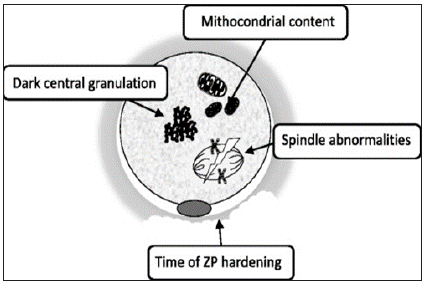How Can We Optimize the Granulose Cell Function of Oocytes from an Endometriosis Patient to Improve the Reproductive Outcomes-A Short Communication? by Kulvinder Kochar Kaur* in Perceptions in Reproductive Medicine_ Journal of Reproductive Health

Abstract
Endometriosis,
results in infertility in 50% infertile women. Explanations given are poor
oocyte quality as well as low grade embryos associated with abnormal
folliculogenesis, with reduced chances of fertilization correlated with
enhanced oxidative stress, high reactive oxygen species (ROS) levels/local
inflammation. Particularly escalated amounts of cytokines are found in
follicular fluid of follicles of Endometriosis subjects. Here we further detail
on the work going on in finding the role of granulosa cells in Endometriosis
subjects with regards to increased inflammation, alteration in cytokines in
follicular fluid that associates with follicular fluid in causing the oxidative
stress, and how the upstream pathway involving tumour necrosis factor alpha
(TNFα) and nuclear factor kappa B( NFκB) that influences both telomere length
as well as telomerase activity, with shorter telomeres as well as reduced
telomerase activity associated with aging follicles as well as those observed
in patients with premature ovarian insufficiency (POI). Thus, this enhanced
granulosa cell NFκB corresponds with inflammation found in FF along with effect
on telomeres. Ways of targeting it seems to be one answer in improving
reproductive potential of Endometriosis
patients.
https://crimsonpublishers.com/prm/fulltext/PRM.000570.php
Crimson
Publishers: https://crimsonpublishers.com/
For
more articles in Perceptions in Reproductive Medicine,
Please
click on below link: https://crimsonpublishers.com/prm/



No comments:
Post a Comment